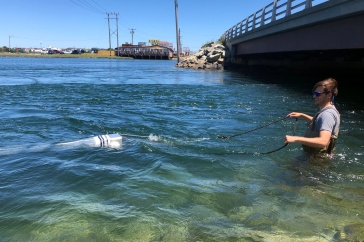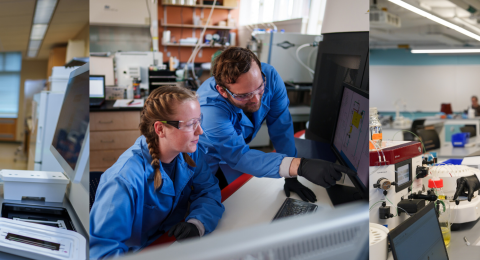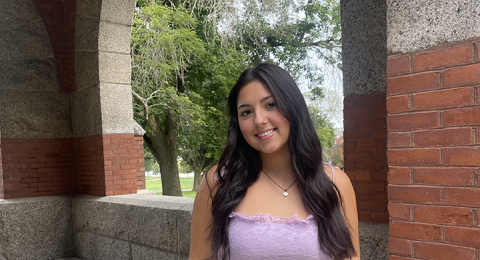Molecular, Cellular, and Biomedical Sciences
Explore the Department of Molecular, Cellular, and Biomedical Sciences
The Department of Molecular, Cellular, and Biomedical Sciences (MCBS) at the University of New Hampshire offers undergraduate and graduate degrees in programs that reflect our strengths in biochemistry and cell biology, genomics, microbiology, and the biomedical sciences. We are also expanding interdisciplinary collaborations within and outside the university to develop new initiatives in the areas of environmental science, computational biology, and translational medicine.
Several MCBS faculty have received awards at both the university and national levels, including awards for excellence in teaching, research, and mentoring.
At the undergraduate level, experiential, hands-on learning is at the core of our teaching mission. In addition to upper-level laboratory courses, many of our students engage in independent research projects under the supervision of a faculty mentor and/or participate in meaningful internships with area employers.
Our graduate programs include 39 faculty representing the following research areas: host-microbe interactions; genome evolution, environmental genomics and molecular ecology; neuroscience; structural biology and proteomics; environmental microbiology; and signal transduction. All of our graduate students in a thesis-based program are fully supported by teaching and/or research assistantships.
Programs of Study
Graduate
Minors
Undergraduate
Recent Stories

UNH Student Awarded Prestigious Graduate Fellowship
UNH Student Awarded Prestigious Graduate Fellowship
Others earned honorable mentions in an exceptionally competitive year
Article
Synthetic Microbiomes: Building Plant Defenses for a Changing Climate
Synthetic Microbiomes: Building Plant Defenses for a Changing Climate
UNH research asks whether synthetic microbiomes can improve plant survival amid climate change pressures
Article
Microplastics in Estuaries
Microplastics in Estuaries
Collecting baseline data on microplastics in local estuaries helps to predict Great Bay’s future
ArticleUpcoming Events
No upcoming events
View Calendar




